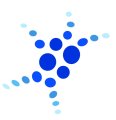
WS 2009/2010
Computational Neuroscience:
Models of Neural Systems
Richard Kempter


|
WS 2009/2010Computational Neuroscience:
|

|
Dates: Weekly, on Mondays, from 19-October-2009 to 08-February-2019.
Location: Bernstein Center for Computational Neurosciences Berlin, Haus 6, Philippstr. 13.
Times:
Theoretical Lectures (2 SWS, 2 ECTS): Mondays from 09:30h to 11:00h in the lecture hall 102
Analytic Tutorials (2 SWS, 4 ECTS): Mondays from 11:30h to 13:00h in
the BCCN seminar room
Experimental Lectures (2 SWS, 2 ECTS): Mondays from 14:00h to 15:30h in the lecture hall 102
Computer Practical (2 SWS, 4 ECTS): Mondays from 16:00h to 18:00h in the computer pool
Target Group: Students of Computational Neuroscience, Medical Neuroscience, Biology, Biophysics, Physics, Mathematics, and Computer Science.
Requirements: Basic knowledge in Mathematics.
Aims and Topics: Participants should learn basic concepts, their theoretical foundation, and the most common models used in computational neuroscience. The module also provides the relevant basic neurobiological knowledge and the relevant theoretical approaches as well as the findings resulting form these approaches so far. After completing the module, participants should understand strengths and limitations of the different models. Participating students will learn to appropriately choose the theoretical methods for modeling neural systems. They will learn how to apply these methods while taking into account the neurobiological findings, and they should be able to critically evaluate results obtained. Participants should also be able to adapt models to new problems as well as to develop new models of neural systems.
Here is the full description of the master module Models of Neural Systems and the bachelor module Theoretische Biologie.
People and Contents:
Theoretical Lectures by
Richard Kempter
Analytic Tutorials by
Jakob Heinzle
and
Jan-Hendrik Schleimer
Experimental Lectures
Computer Practical by
Bartosz Telenczuk and
Robert Schmidt
Analytic Tutorials: To obtain a course certificate for 4 ECTS ("Schein") that certificates a successful participation, solutions to the weekly assignments must be turned in on Monday morning BEFORE the lecture. An active participation in the tutorials is also required.
Computer Practicals: To obtain a course certificate for 3 ECTS ("Schein") that certificates a successful participation, solutions to the weekly assignments must be turned in on the Sunday preceding the next computer practical. To obtain 4 ECTS, Master students of the Computational Neuroscience Program must present the results of a small programming project on Feb 8, 2010.
Module Examinations: Oral exam; certificates of successful participation in the tutorials and/or practicals is a prerequisite for the oral exam. The exam should be taken at the end of the semester, but has to be taken latest by the end of the semester following the one of obtaining the tutorial certificates.
Recommended reading:
P. Dayan and L.F. Abbott (2001) Theoretical Neuroscience. MIT Press, Cambridge, Massachusetts.
E. M. Izhikevich (2007) Dynamical Systems in Neuroscience: The Geometry of Excitability and Bursting. MIT Press, Cambridge, Massachusetts.
Johnston, Wu (1995) Foundations in Cellular Neurophysiology, MIT Press, Cambrigdge, Massachusetts.
Advanced/additional reading:
M. F. Bear, B. W. Connors, M. A. Paradiso (2007) Neuroscience: Exploring the Brain, Lippincott Williams & Wilkins, Baltimore, Maryland.
Thomas P. Trappenberg (2002) Fundamentals of Computational Neuroscience. Oxford University Press, Oxford, UK.
P. Churchland and T. Sejnowski (1994). The Computational Brain. MIT Press, Cambridge, MA.